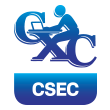In response to research on emerging skills and careers in high demand, the organisation has developed two new syllabuses – Digital Literacy for learners working towards certifications for the Caribbean Certificate of Secondary Level Competence (CCSLC®) and Design and Technology for learners at the Caribbean Advanced Proficiency Examination (CAPE®) level.
As a member of CARICOM, the Caribbean Examinations Council® (CXC®) plays an integral role in regional Human Resource Development. Most recently, in response to research on emerging skills and careers in high demand, the organisation developed two new syllabuses. The courses will be introduced for learners working towards certifications for the Caribbean Certificate of Secondary Level Competence (CCSLC®) and at the Caribbean Advanced Proficiency Examination (CAPE®).
The syllabus in Digital Literacy was introduced in schools in September 2019 and learners began to explore the subject as one of the requirements to earn their CCSLC® certification.
The syllabus was guided by several factors which are of significance in this dynamic technological era. Technological innovations influence all areas of life, from the daily lives of individuals, to the work of business and government, to interactions on a global scale. These innovations help meet basic human needs and provide opportunities for improving the lives of people. The use of technology in everyday life is second nature to the digital natives that are presently in classrooms across the region. These digital native learners must be prepared to thrive in a constantly evolving technological landscape and this new syllabus will contribute to meeting their needs.
Additionally, the reach and rapid evolution of digital technology demand a curriculum that will enable learners to become digitally literate, that is, able to understand, work with, and benefit from a range of digital media, software applications, and hardware devices such as computers, mobile phones, and internet technology. They must also have the ability to critically understand digital media content and its applications and possess the knowledge and capacity to create with digital technology.
This syllabus will also help learners to develop some fundamental skills and competencies such as critical thinking, creativity, problem solving, and the ability to do research, communicate and collaborate. These skills will help them to take a full and active part in social, cultural, economic, civic and intellectual life. Further, learners will acquire the skills to create, use, remix, and share content in a manner that is respectful of the rights of other users.
CCSLC® is a competency-based programme comprising a core of subjects – English, Integrated Science, Mathematics, Modern Languages, Social Studies and now Digital Literacy. Through this exposure to these core subjects the learner should acquire the knowledge, skills, competencies, values and attitudes that are in keeping with the philosophical, psychological and political perspectives embraced by the Council, that are considered to be desirable in a secondary school leaver. Learners can also gain additional benefit through special programmes, at the national level, that may be added as electives to the core.
Beginning in September 2020, learners at the CAPE® level are scheduled to be introduced to Design and Technology, a course of study which will provide opportunities for them to be engaged in a process where they capture creative, innovative solutions that are functional and aesthetically pleasing while contributing to wealth creation. Design is a discipline that focuses on the creation of a plan or convention for the construction of an object, system or measurable human interaction. It encapsulates designing of architectural blueprints, engineering drawings, business and manufacturing processes, circuit diagrams, and fashion, textiles and apparel construction through design thinking and the application of the elements and principles of design which are common to most, if not all fields and industries. Technology meanwhile, focuses on the advancements and evolution of a modern digital society based on technological and experiential innovation.
The multidisciplinary nature of the syllabus will also prepare students for further studies or immediate entry into the world of work through employment or entrepreneurial ventures that allow for the fusion of art, science, technology and engineering on a blank canvas to create processes or products that can be commercialised.
The syllabus will also emphasise the design thinking principles which bring together what is desirable, from a human point of view, with what is technologically feasible and economically viable. This approach will also allow for the use of creative tools to address a vast range of challenges from varied context. Central to the design philosophy is the role of brainstorming and prototyping where focus is placed on the three ‘Rs’— doing it rough, rapid and right. The syllabus promotes engagement in the engineering design process and the use of prototypes to accurately communicate the design ideas to all stakeholders involved. Consequently, within the authentic learning environment, teachers are encouraged to use a range of teaching and assessment strategies to include rapid prototyping, brainstorming, probing questions and research, that will enable students to gain a level of independence and cooperative skills as they develop their practical skills and apply the elements and principles of design.
Through this study of Design and Technology, students will also develop transferrable critical thinking, collaboration, communication, innovation, artistry, digital, scientific, environmental and solutions oriented focused skills that are relevant to aesthetic, economic, and sociopolitical development in the Twenty-First Century.
Visit the CXC® Learning Hub for more information: https://learninghub.cxc.org/














Good move by CXC. Hope robotics for CAPE one day